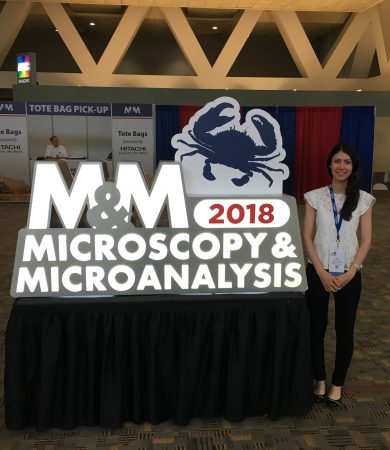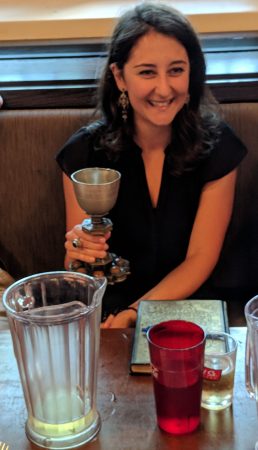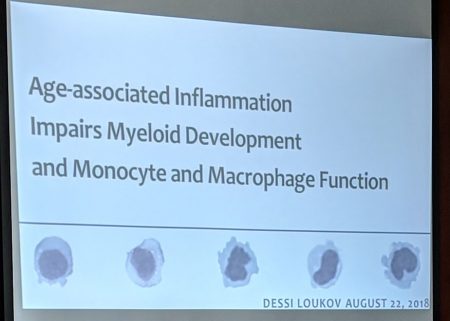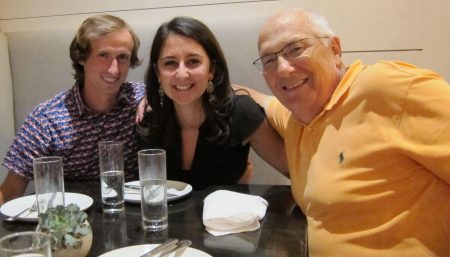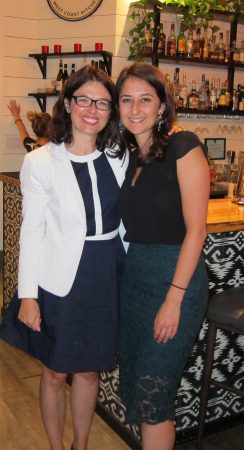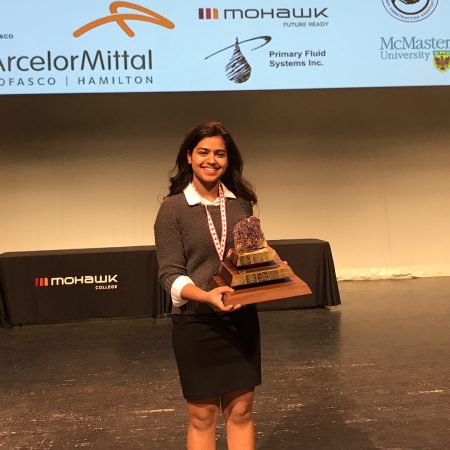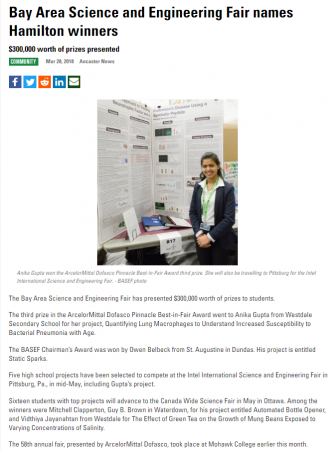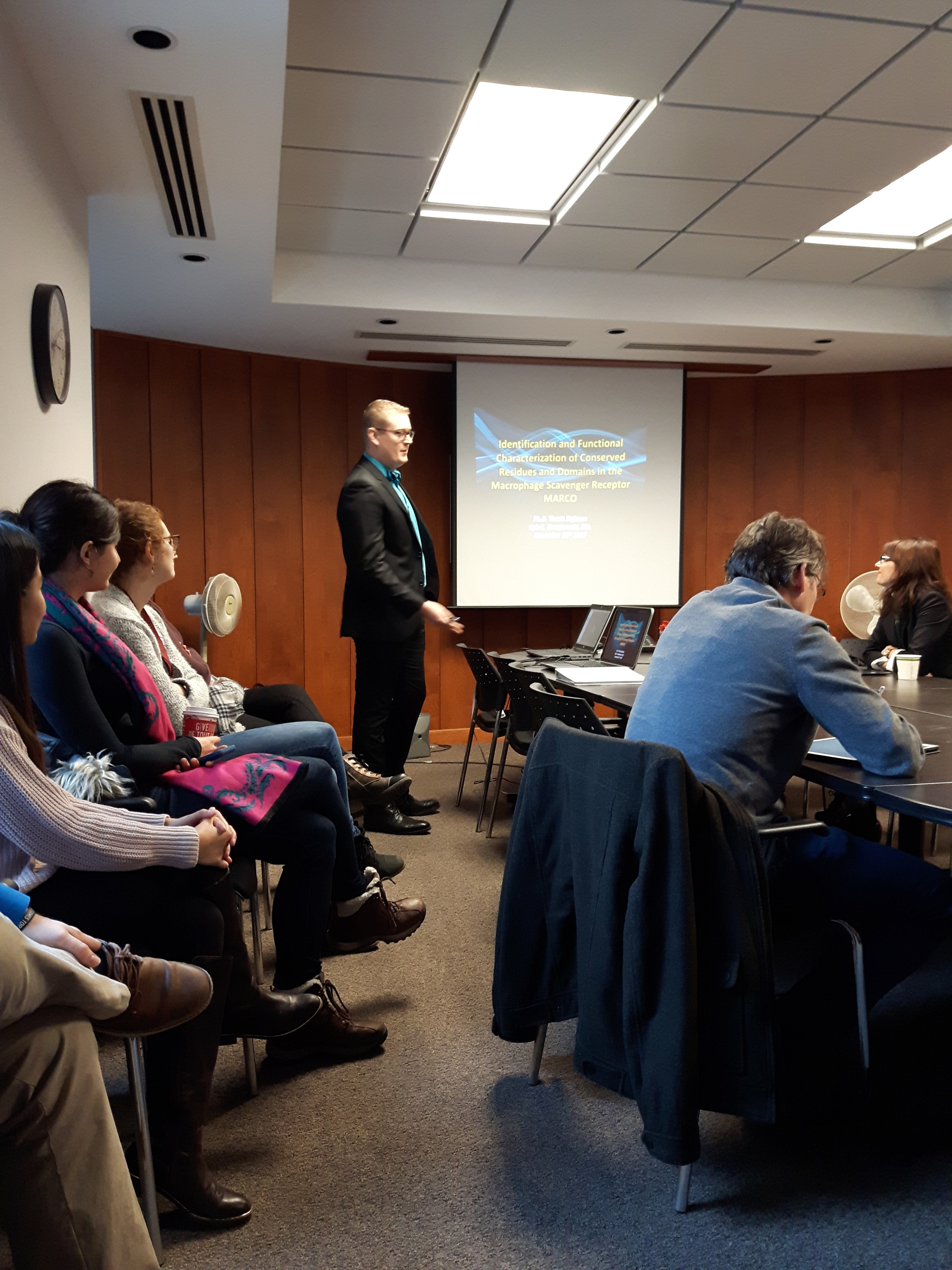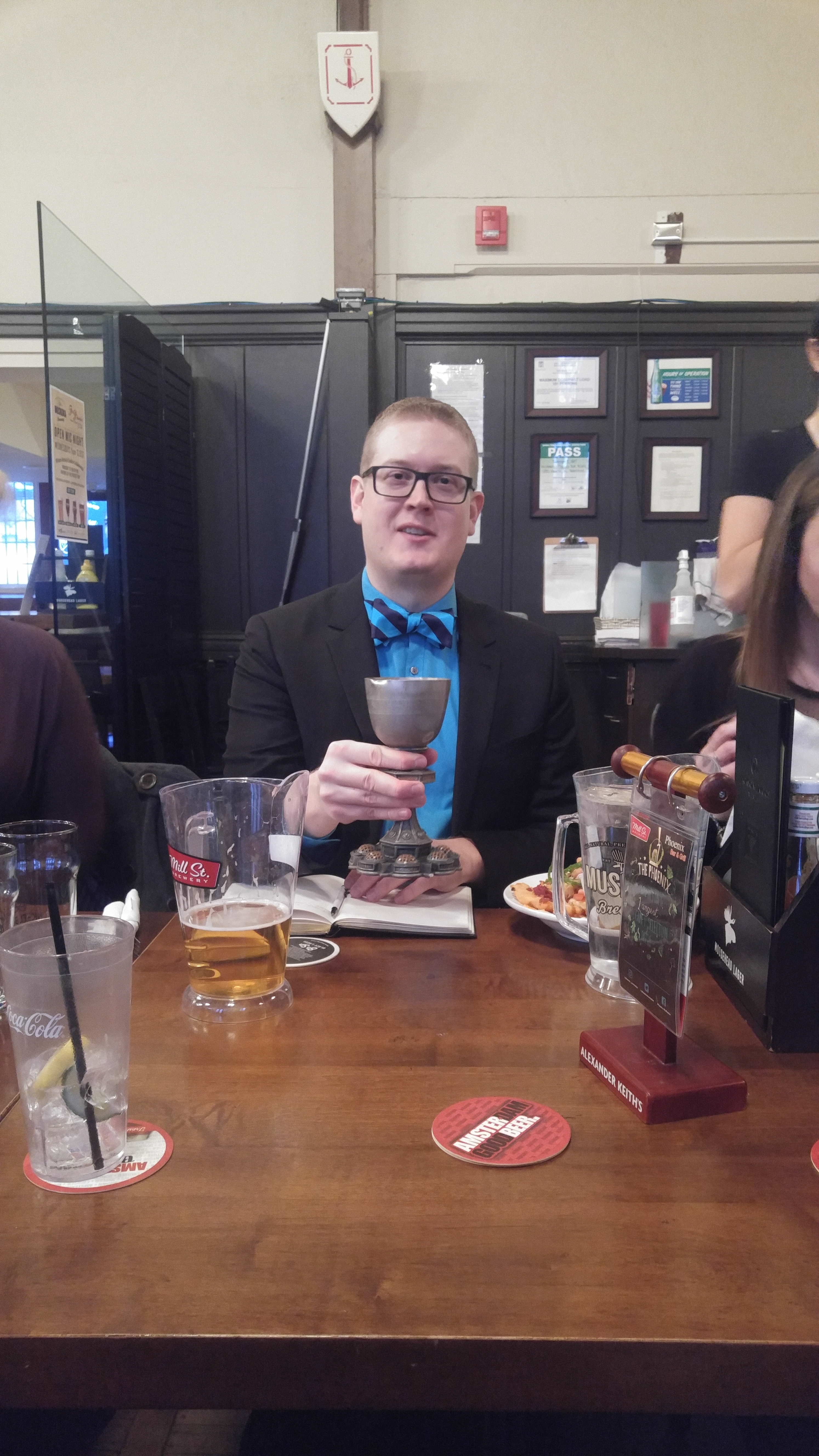Download PDF here.
Link to journal here.
Abstract: Somatic mutations in the TET2 gene occur more frequently with age, imparting an intrinsic hematopoietic stem cells (HSCs) advantage and contributing to a phenomenon termed clonal hematopoiesis of indeterminate potential (CHIP). Individuals with TET2-mutant CHIP have a higher risk of developing myeloid neoplasms and other aging-related conditions. Despite its role in unhealthy aging, the extrinsic mechanisms driving TET2-mutant CHIP clonal expansion remain unclear. We previously showed an environment containing tumor necrosis factor (TNF) favors TET2-mutant HSC expansion in vitro. We therefore postulated that age-related increases in TNF also provide an advantage to HSCs with TET2 mutations in vivo. To test this hypothesis, we generated mixed bone marrow chimeric mice of old wild-type (WT) and TNF–/– genotypes reconstituted with WT CD45.1+ and Tet2–/– CD45.2+ HSCs. We show that age-associated increases in TNF dramatically increased the expansion
of Tet2–/– cells in old WT recipient mice, with strong skewing toward the myeloid lineage. This aberrant myelomonocytic advantage was mitigated in old TNF–/– recipient mice, suggesting that TNF signaling is essential for the expansion Tet2-mutant myeloid clones. Examination of human patients with rheumatoid arthritis with clonal hematopoiesis revealed that hematopoietic cells carrying certain mutations, including in TET2, may be sensitive to reduced TNF bioactivity following blockade with adalimumab. This suggests that targeting TNF may reduce the burden of some forms of CHIP. To our knowledge, this is the first evidence to demonstrate that TNF has a causal role in driving TET2-mutant CHIP in vivo. These findings highlight TNF as a candidate therapeutic target to control TET2-mutant CHIP.
Bluesky explainer thread here:
New Paper Alert: “Chronic TNF in the aging microenvironment exacerbates Tet2 lost-of-function myeloid expansion” published in Blood Advances #ImmunoSky #CHIP https://authors.elsevier.com/sd/article/S2473952924003860 (1/n)
Over time the progenitor cells (#stemcells) in our bone marrow acquire random mutations, with some genes being more likely to acquire these mutations than other. The Tet2 gene is one that acquires mutations. This is a problem because it regulates other genes through methylation (2/n)
Hematopoetic #stemcells with Tet2 mutations favour production of myeloid cells (#neutrophils #monocytes) over lymphoid cells (#Tcells #Bcells) and can outcompete stem cells that don’t have Tet2 mutations.(3/n)
If too many white blood cells originate from these mutants it is called Clonal Hematopoesis of Indeterminate Potential or #CHIP. CHIP is associated with an increase in mortality, and pneumonia (see prev paper), because immune cells with these mutations don’t work as well (4/n) https://shorturl.at/JNk6d
With age the proportion of Tet2 mutant cells increases and it is thought that the increased #inflammation that occurs with age contributes. Darwinian evolution happens in the bone marrow and stem cells with Tet2 mutations can outcompete (i.e. replicate more, make more white blood cells) than those without (5/n)
We investigated whether Tet2 mutant stem cells could outcompete others in the presence of the inflammatory cytokine TNF, which increases with age. We put a mix of normal and Tet2-/- stem cells into old mice that had lots of TNF and those with none (TNF KO). 6/n
Stem cells with Tet2 mutations could outcompete normal cells in old mice that had lots of TNF but not in TNF knockout mice. The aging inflammatory microenvironment contributes to CHIP! (7/n)
Cool finding- People with newly diagnosed #rheumatoidarthritis have lots of TNF and had low level of Tet2 and other CHIP mutants that went down as they started anti-TNF or anti-inflammatory therapy! Proof this happens in humans too (8/n)
Huge thank you to not on Bluesky Drs Michael Rauh (Queens), Candice Quin ( @uniofaberdeen.bsky.social ), Maggie Larche (UCalgary), Salman Basrai&Sagi Abelson @oicr.bsky.social and team. (9/9)


